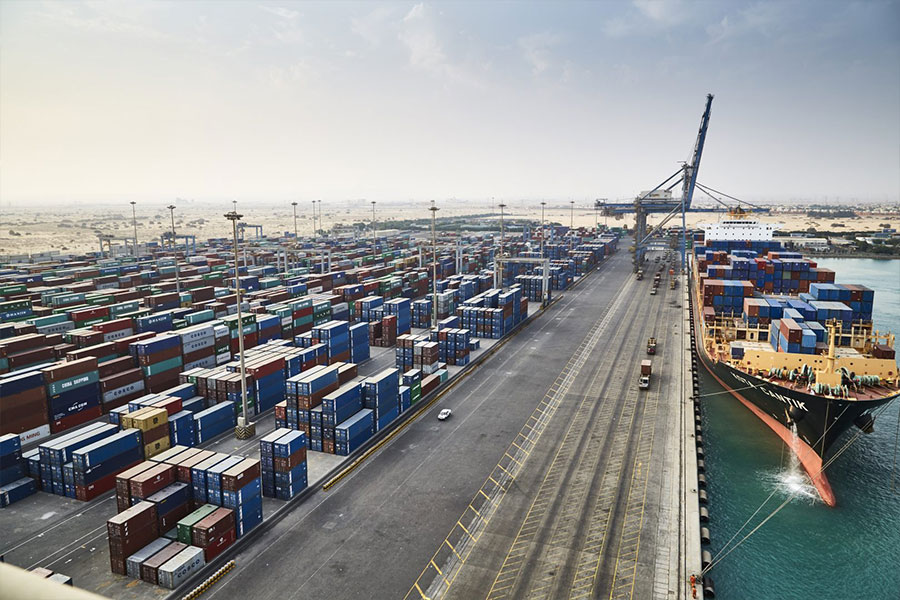
Viewpoints | Dec 30,2023
Jun 27 , 2020
By Kidist Yidnekachew
In the early hours of a misty morning, two middle-aged female residents of the poorly electrified condominium of Bole Bulbula sit on their stoop contemplating and discussing what is happening before their eyes. Through the fog in the distance, they see four men unloading an Isuzu truck.
The men seem to be unpacking unripe bananas. But that is just a cover. Just under the bananas are sacks of charcoal, which the women are waiting to buy. These sacks were particularly cheaper since they were produced and now sold illegally.
The same women could be found complaining about the deforestation of the rural area where they were raised while also belittling the government’s attempt to create a greener environment.
That acres of forest are chopped down for charcoal production is no secret. Many will be quick to blame the inefficiency of the government’s regulation of Ethiopia’s forest management but almost equally deserving of criticism is the high demand. It goes beyond the country's limited access to electricity, to the casualness with which people perceive their own actions.
Take drug dealers, for example, who face long prison sentences but still commit their crimes. It is not only because their efforts have not been suspended, but because they have buyers.
Matters only get worse during a national emergency, as was the case during the first few weeks of the Novel Coronavirus (COVID-19) pandemic, when people began to hoard food items only to go back home to complain about intermediaries and their inclinations to capitalise in times of crisis.
The consumer has power. If, as a society, we were to reject injustice and create a unified front against over-priced commodities, the distributors would crawl back to supplying these commodities at a fair price.
But humanity is a permanent carrier of the disease known as hypocrisy, and Ethiopians are no different. Individuals that are part and parcel to a problem sit and complain about the inability of government to deal with such problems.
Perhaps the greatest example of this is how politics is discussed. It is not uncommon to see someone complaining about the lingo-cultural divide in Ethiopia minutes before uttering a lightly veiled slur to someone of a certain ethnicity.
The power we have as individuals is mostly overlooked. The I-am-only-one-person-I-cannot-make-a-difference mentality is a cancer that has corrupted our social fabric.
“But I am only throwing a gum wrapper or tissue and the place is already messy, so my one piece of dirt really won’t make a difference,” people say.
But that is how the trash piles up in the first place. Most people would not be tempted to throw trash in a clean environment, but if they saw that the place is dirty, then they think, “what harm would one candy wrapper do?” It is psychological.
But many do not seem to realise this, and the people in my neighbourhood did not either. A cleaning event was recently held in my neighbourhood but meant little since people went back to their habit of littering. Cleaning up was more or less for nothing. It is like taking one step forward and two steps backwards.
The improvements we want to see are in our hands, and this starts with the little things. Look at maximum passenger limits on mini-buses, which have existed as long as taxi drivers have defied them. To add insult to injury, they begin to hike up fares in the evening. Loaded like cattle in mini-bus taxies, people still obediently pay higher fares than the taxi driver is allowed to make them pay.
The only reason the taxis abuse customers like this is because we let them. The government has done its part by putting in place protections and enforcing them, though with shortcomings. But we should not expect the government to be an all-seeing presence that protects every citizen every time. Citizens have a duty, a part to play in the betterment of the country.
PUBLISHED ON
Jun 27,2020 [ VOL
21 , NO
1052]


Viewpoints | Dec 30,2023

Fortune News | Aug 21,2023

Viewpoints | May 27,2023

Viewpoints | Feb 13,2021

Life Matters | May 13,2023

Life Matters | Oct 10,2020

Fortune News | Dec 03,2022

Commentaries | Sep 20,2025

My Opinion | Jan 04,2020

Commentaries | Jul 07,2024

Photo Gallery | 178473 Views | May 06,2019

Photo Gallery | 168671 Views | Apr 26,2019

Photo Gallery | 159477 Views | Oct 06,2021

My Opinion | 137078 Views | Aug 14,2021
Commentaries | Oct 25,2025

Dec 22 , 2024 . By TIZITA SHEWAFERAW
Charged with transforming colossal state-owned enterprises into modern and competitiv...

Aug 18 , 2024 . By AKSAH ITALO
Although predictable Yonas Zerihun's job in the ride-hailing service is not immune to...

Jul 28 , 2024 . By TIZITA SHEWAFERAW
Unhabitual, perhaps too many, Samuel Gebreyohannes, 38, used to occasionally enjoy a couple of beers at breakfast. However, he recently swit...

Jul 13 , 2024 . By AKSAH ITALO
Investors who rely on tractors, trucks, and field vehicles for commuting, transporting commodities, and f...

Oct 25 , 2025
The regulatory machinery is on overdrive. In only two years, no fewer than 35 new pro...

Oct 18 , 2025
The political establishment, notably the ruling party and its top brass, has become p...

Oct 11 , 2025
Ladislas Farago, a roving Associated Press (AP) correspondent, arrived in Ethiopia in...

Oct 4 , 2025
Eyob Tekalegn (PhD) had been in the Governor's chair for only weeks when, on Septembe...

Oct 25 , 2025 . By YITBAREK GETACHEW
Officials of the Addis Abeba's Education Bureau have embarked on an ambitious experim...

Oct 26 , 2025 . By YITBAREK GETACHEW
The federal government is making a landmark shift in its investment incentive regime...

Oct 29 , 2025 . By NAHOM AYELE
The National Bank of Ethiopia (NBE) is preparing to issue a directive that will funda...

Oct 26 , 2025 . By SURAFEL MULUGETA
A community of booksellers shadowing the Ethiopian National Theatre has been jolted b...